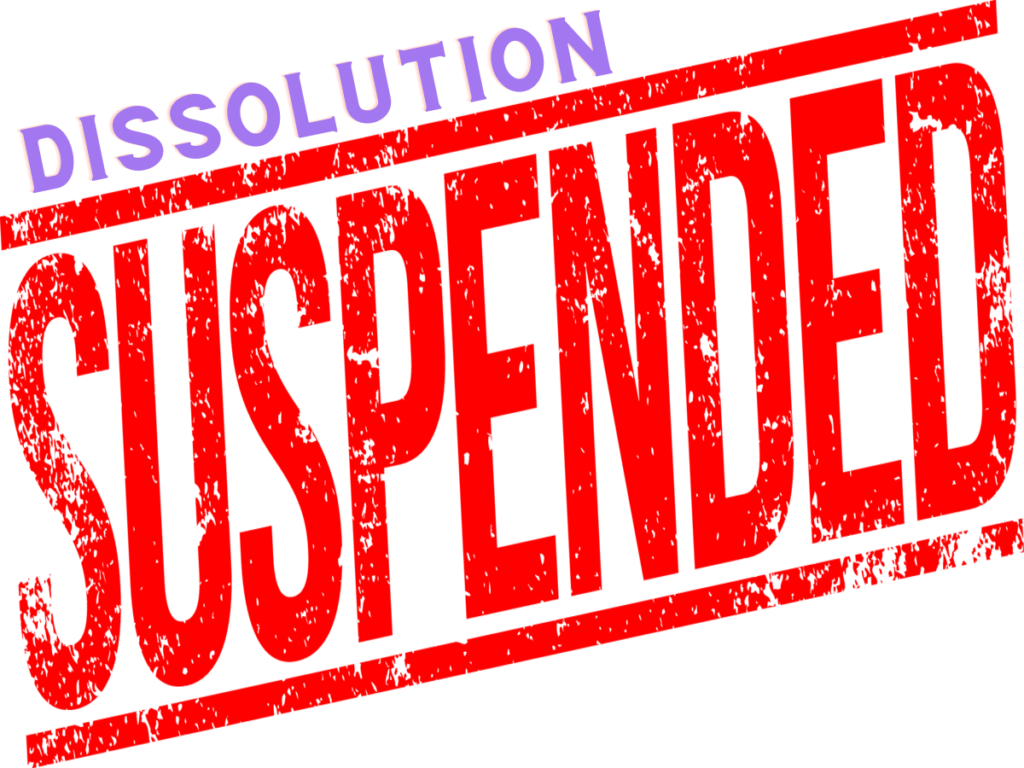Comprehending Compulsory Strike Off: What You Need to Know
Comprehending Compulsory Strike Off: What You Need to Know
Blog Article
A Comprehensive Overview to the Compulsory Strike Off Treatment in Corporate Administration
Browsing the detailed landscape of company governance requires an eager understanding of the treatments that control the dissolution of entities. The required strike off treatment, a critical element in corporate administration, works as a device to apply compliance and preserve the stability of the service atmosphere. As services progress and situations adjustment, the need to strike off a company may occur for numerous reasons (what is compulsory strike off). Discovering the ins and outs of this process, including the lawful ramifications, procedural actions, and post-strike off factors to consider, provides very useful understandings for stakeholders seeking to navigate the intricacies of business governance.
Reasons for Compulsory Strike Off
There are several crucial factors that may trigger the initiation of a compulsory strike off procedure for a business. Non-compliance with regulative demands can increase problems about the company's operations and monetary health and wellness, leading to the choice to strike off the company from the register.
Additionally, business that have stopped trading or are no much longer lugging out any company activities may likewise deal with compulsory strike off. This could be because of insolvency, mergers, or just a decision to wind up the business. In such instances, keeping the firm on the register would certainly offer no objective and can possibly produce confusion among stakeholders.
Ultimately, the necessity of a compulsory strike off in corporate administration develops when a firm is no more running according to the legislation or has become defunct, necessitating its elimination from the authorities records.
Lawful Ramifications and Dangers
Provided the conditions that trigger an obligatory strike off in business governance, it is important to comprehend the legal implications and threats linked with such actions. When a firm is struck off the main register, it disappears as a legal entity. This can have serious effects for supervisors, financial institutions, and shareholders. Directors might deal with personal responsibility for company debts sustained after the dissolution, revealing their possessions to potential seizure. Investors lose their financial investment in the company, and financial institutions might find it testing to recover financial debts owed to them.
In addition, there are lawful repercussions for individuals included in the administration of a business that has been forcibly struck off. Furthermore, the reputational damages from a compulsory strike off can have lasting effects on individuals and their ability to involve in future business ventures.
Actions in the Strike Off Process
Initiating the required strike off process in corporate governance entails a series of prescribed actions outlined by regulatory authorities. The very first step usually requires the firm to submit a formal application or notification to the pertinent government firm or registrar signaling its intent to be struck off the main register. Subsequently, the business is typically required to resolve any type of exceptional liabilities, financial obligations, or taxes to make sure compliance with regulatory demands.
Once the preliminary paperwork is sent and financial commitments are satisfied, the regulatory body will certainly publish a notification in a comparable publication or the official gazette to educate stakeholders regarding the upcoming strike off. This notice acts as a last opportunity for any type of interested parties to raise objections or existing valid factors why the firm ought to not be liquified.
Complying with the publication of the notice, the governing authority will certainly wage the strike off process if no considerable helpful site objections or barriers arise. The business will certainly after that be officially dissolved, and its name will certainly be removed from the register, properly marking the conclusion of the obligatory strike off treatment in corporate governance.
Papers Needed for Strike Off
In compliance with governing guidelines, details paperwork must be supplied to facilitate the strike off procedure in business governance. Furthermore, financial statements, such as the firm's newest balance sheet, need to be included to guarantee that all economic obligations have actually been settled before starting the strike off procedure. It is crucial to guarantee that all the requisite documentation is carefully ready and sent in conformity with the prescribed guidelines to quicken the strike off process efficiently.
Post-Strike Off Factors To Consider and responsibilities

An additional vital post-strike off consideration is the potential for the company to be brought back to the register. If there is a requirement to restore the firm after strike off, the procedure for restoration should be very carefully complied with to ensure compliance with legal demands.
Conclusion

There are several crucial factors that may motivate the initiation of a mandatory strike off treatment for a company. Non-compliance with regulatory demands can elevate issues concerning the company's procedures and economic health and wellness, leading to the choice to strike off the company from the register.
Furthermore, firms that have stopped trading or are no much longer carrying out any service tasks might also deal with compulsory strike off. If there is a requirement to revitalize the firm after strike off, the process for repair must be carefully followed to ensure conformity with legal needs.In verdict, the mandatory strike off procedure in company administration offers as an essential system to eliminate inoperative firms from the register.
Report this page